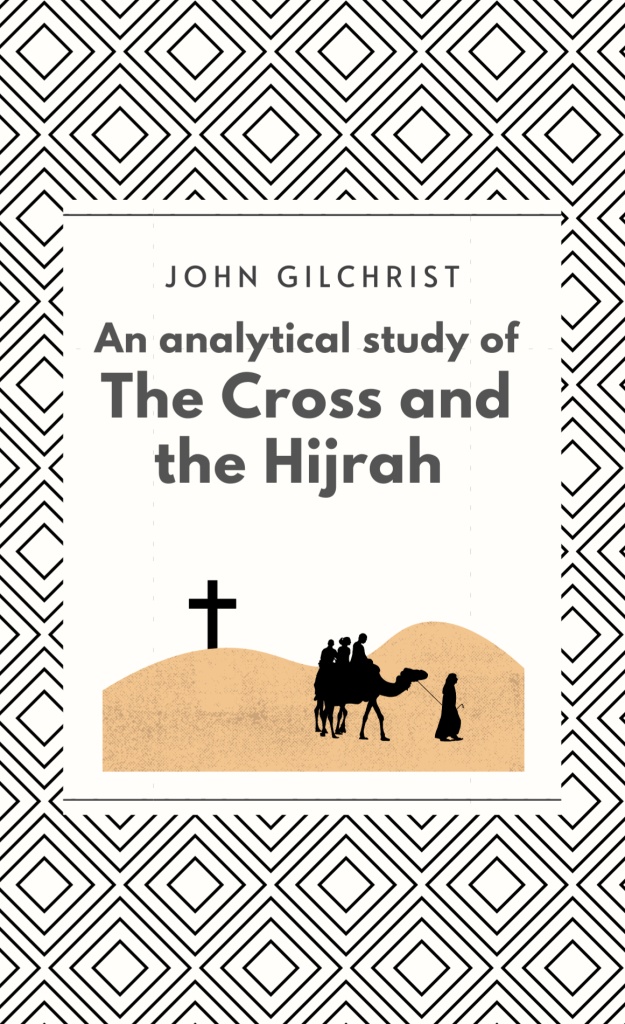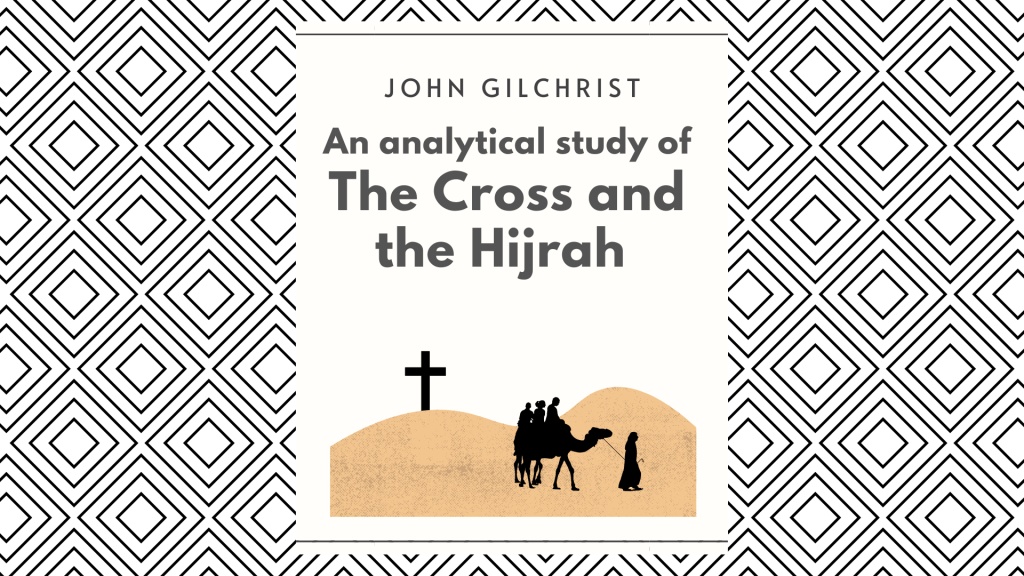The Opposition to Jesus and Muhammad
An Analytical Study of the Cross and the Hijrah


Chapters
- Introduction
- The Similarities between Jerusalem and Mecca
- The Opposition to Jesus and Muhammad
- The Ways of Escape Before both Men
- Muhammad and the Ummah at Medina
- The Contrasting Path Chosen by Jesus Christ
- The Cross - the Choice of the Saviour of the World
- The End Result: the Glorious Kingdom of God
« Ch. 2 - The Similarities between Jerusalem and Mecca
Jesus and Muhammad both rose from among their own people and came into prominence as they began to preach in their holy cities. It took only a short while, however, before each was strongly opposed and persecuted by the inhabitants of Jerusalem and Mecca respectively. They both acknowledged the sanctity of the holy shrines in their cities but stood firmly against the practices and ceremonies being conducted around them. Jesus recognised that the Temple was the sacred house of the God of Israel and constantly referred to is as "my Father's house" (Luke 2:49, John 2:16). So likewise Muhammad acknowledged that Allah was the "Lord of the Ka'aba" and the Qur'an teaches that it was originally built by Abraham through a direct command of Allah in these words:
We covenanted with Abraham and Ismail, that they should sanctify My House for those who compass it round, or use it as a retreat, or bow, or prostrate themselves (therein in prayer). -- Quran 2.125
Jesus stood against the Temple worship, not because he did not accept that it was the true Holy Place of God on earth, but because the religion of the Jews, in particular the rites being practised around the Temple, had become a gross perversion of what God had intended it to be. The Jewish leaders had forsaken the commandments of God for the sake of their own tradition (Matthew 15:6).
Shortly after his baptism and at the very beginning of his public ministry Jesus entered the Temple and made a public remonstration against the religious orders of the day. The incident is recorded as follows:
The Passover of the Jews was at hand, and Jesus went up to Jerusalem. In the temple he found those who were selling oxen and sheep and pigeons, and the moneychangers at their business. And making a whip of cords, he drove them all, with the sheep and the oxen, out of the temple; and he poured out the coins of the moneychangers and overturned their tables. And he told those who sold the pigeons, "Take these things away; you shall not make my Father's house a house of trade". -- John 2:13-16.
This act immediately set the Jews of Jerusalem against him and when he repeated it during the last week of his ministry, the chief priests and scribes and principal men of the Jews took counsel against him to put him to death (Luke 19:47). Jesus, on this latter occasion, condemned the whole Jewish system around God's House in these words:
"It is written, 'My house shall be a house of prayer'; but you have made it a den of robbers". -- Luke 19:46
Muhammad stood against the rites around the Ka'aba because the shrine was polluted with idols. It is said there were more than three hundred in and around the shrine. At the age of thirty-five, some five years be- fore the commencement of his public preaching, he was selected to replace the black stone in the Ka'aba as it was being rebuilt. He willingly consented and throughout his life regarded the Ka'aba as a sacred shrine built originally for the honour of Allah alone.
His early teachings, however, struck right at the root of the pagan idolatry surrounding the building. He constantly declared that God was One, that he had no partners, and that any association of any creature with him was an unforgivable sin (Quran 4.116). He thus condemned out of hand the whole of the Ka'aba worship as idolatrous and whereas, like Jesus at the Temple, he did not disdain to worship at the Ka'aba, he nevertheless opposed the idol-worship associated with the shrine.
In both cases the cities rose in defiance of these men who promised nothing less than the supreme punishment to their most distinguished inhabitants. Jesus plainly said to the Jewish leaders, "How are you to escape being sentenced to hell?" (Matthew 23:33), and Muhammad likewise warned the Arabs against the Day of Judgment when they would be dragged through the Fire, being commanded, "Taste ye the touch of Hell!" (Quran 54.48). Each came to a point of crisis and decision. When Muhammad made a covenant with certain men from Yathrib (Medina), it was discovered by the Quraysh and they finally determined to put him to death. A three-year trade ban on the sub-tribe of Banu Hashim to which Muhammad belonged had failed to negate his influence and the Meccan Arabs decided on the ultimate method of silencing him. Muhammad's life was no longer safe in Mecca - the point of decision had come. The Qur'an itself mentions the plot laid by the unbelieving Arabs to kill Muhammad:
Remember how the Unbelievers plotted against thee, to keep thee in bonds, or slay thee, or get thee out (of thy home). They plot and plan, and God too plans, but the best of planners is God. -- Quran 8.30
Muhammad had to take a quick decision in this moment of crisis. He had to act one way or the other in the face of the, by now, extreme threat from the idolatrous Arabs of Mecca.
Jesus reached a similar point where he too had to make a sudden decision in the face of a growing scheme to destroy him. When he raised Lazarus from the dead the chief priests among the Jews at Jerusalem, concerned at his growing influence, finally turned their desire to do away with him into a deliberate plot to kill him:
So from that day on they took counsel how to put him to death. -- John 11:53
Like Muhammad he was faced with a moment of destiny. Should he remain in Jerusalem and endanger his life, or should he move away from the city?